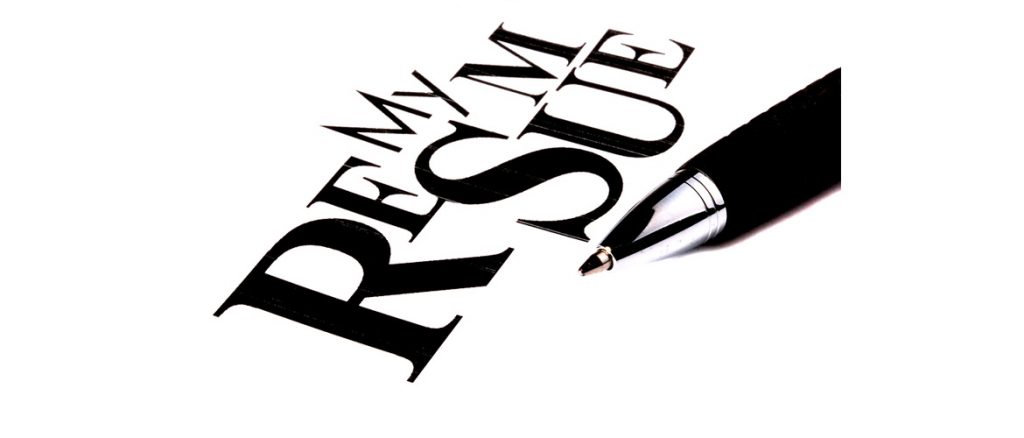In order to write an impressive resume, we must first understand the purpose of the resume. There is a common misconception regarding its intention. Contrary to popular belief, the purpose of the resume is not to land a job, but to obtain an interview.
Discrimination:
As much as it shouldn’t happen in today’s society, discrimination is still rife throughout our community. Age, race and location can all be discriminated against when it comes to potential employers. This can be avoided by utilizing the following steps:
1: Anglicising your name.
There is absolutely nothing wrong with using an english version of your name, it is quite common place and will increase your chances of obtaining an interview.
2: It is perfectly acceptable to omit your age from your resume.
3: Location should be included in your resume unless you are applying for a job interstate or outside a 30km radius of your abode.
Email addresses:
Ensure your email address is a professional one, free of any personal aliases. Generally speaking, most firms will not look at any email address with a hotmail address, corporate domains are always held in higher regards. If you must use a free email host, gmail is much more professional.
Length:
The average HR consulant will spend a maximum of 20 seconds scanning your resume before deciding whether to put it in the call back pile or the trash, trim your resume down to 2-3 pages max. Trim out all the “fat” and only include skills and experience(s) relevant to the particular job you are applying for (using bullet points is an excellent way of getting straight to the point).
Experience:
The three key attributes most employers are seeking are as follows:
1: Attitude towards work
2: Communication/interpersonal skills
3: Experience/technical skills
Whilst the first two attributes can be conveyed to a certain degree within a resume, they are more so conveyed to the potential employer during the interview process. The experience/technical skills however is conveyed heavily to any potential employer throughout your resume and is the most powerful selling tool of your resume. It is quite commonplace (and incorrect) to have around four to five different jobs on your resume, each around one paragraph long. The most important job on your resume is the one that relates closest to the job you are currently applying for, so of a 2-3 page resume, you are only giving one paragraph to the most powerful sales tool in your resume? Commonsense dictates that you should be giving as much space as possible to the most important section, the best way to accomplish this is as follows:
- Trim all the fat from your resume (ie remove hobbies, interests and all other unnecessary fillers and put your referees available upon request (unless you have room without exceeding three pages)).
- Depending on how many jobs you have had, either delete or trim down to one sentence any job which is unrelated to the position you are applying for (unless you have absolutely no previous jobs relating to the role)
- Expand the role which relates most to the one applying for (even to over a page if possible)
- Write a brief sentence describing the company and services it provides
- Using bullet points list all your roles and responsibilities (as many as you can think of)
- Again with bullet points list all the achivements you have accomplished at this particular role
- If your job was performed overseas/interstate, remove the address and just list the name of the entity
Key words:
Many larger organisations will have a filter which will scan all resumes received for key words they are looking for, i.e an accounting firm may be searching for resumes with the words “bank reconciliation”, “general purpose financial reports”, “tax returns” etal. A good way to ensure your resume is selected by the filter is to compile a list of key skills (a three column bullet point table in order to save space), with as many key skills as possible which are vital for the position being applied for.
Formatting:
Use a concise format with clear headings and a uniform font throughout (Arial and Times New Roman are both safe bets). Ensure there are no grammatical/spelling errors and use the same size format for the body of text (size 11 is a sound choice). Presentation plays a very important role in many ways, if you can’t present your resume in pleasing manner when under no time constraints, how can you be expected to produce impeccably presented reports under time constraints at work?
Customisation:
Different jobs require different skill sets/experience. Sending the same resume to each job being advertised is a waste of an opportunity to sell yourself. Analyse the job duties and requirements and tweak your resume to highlight certain skills and experiences which you feel are imperative to the role being advertised.
And last but not least, have somebody else review your resume, as they are able to review it from a different perspective, by implementing the above, your chances of landing your ideal job should improve greatly.





